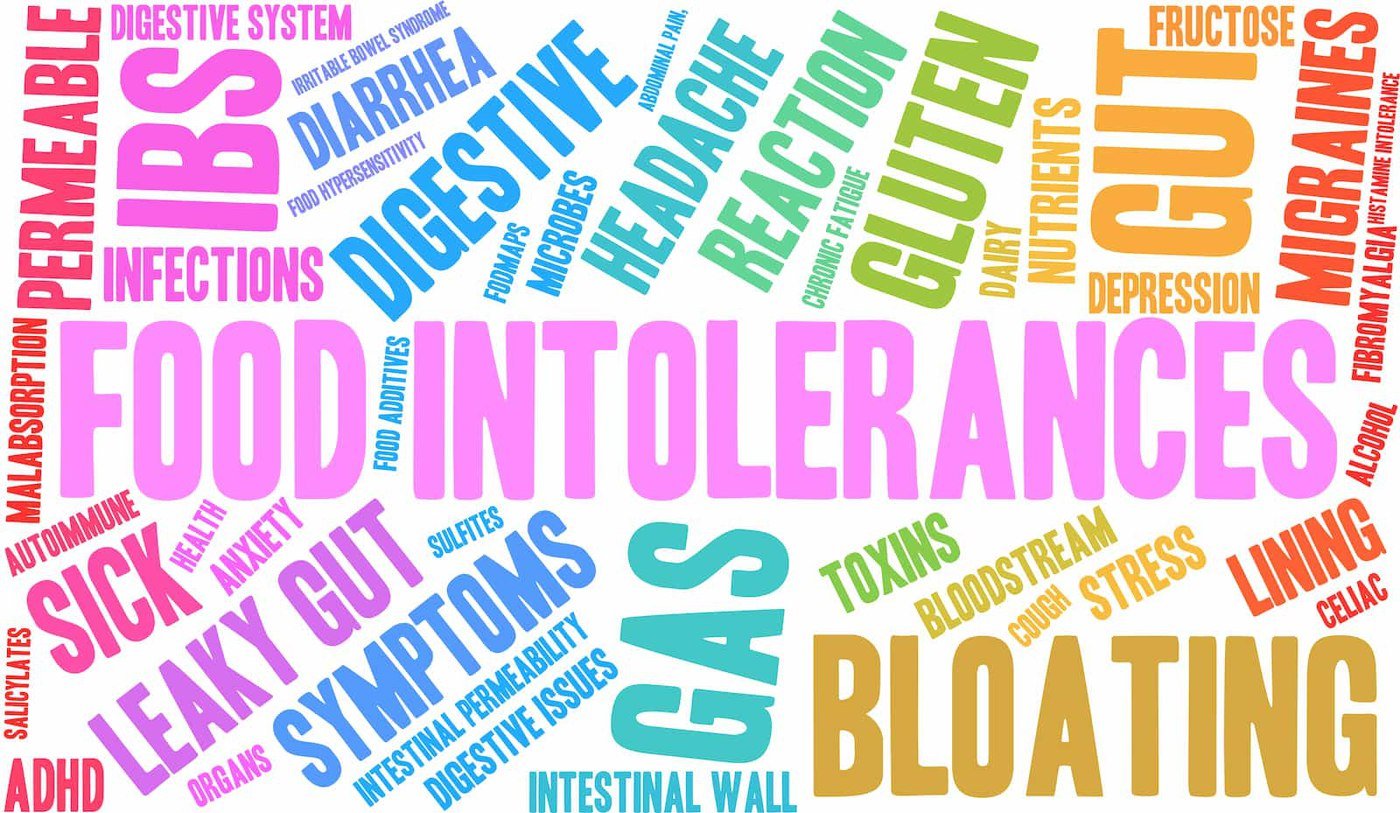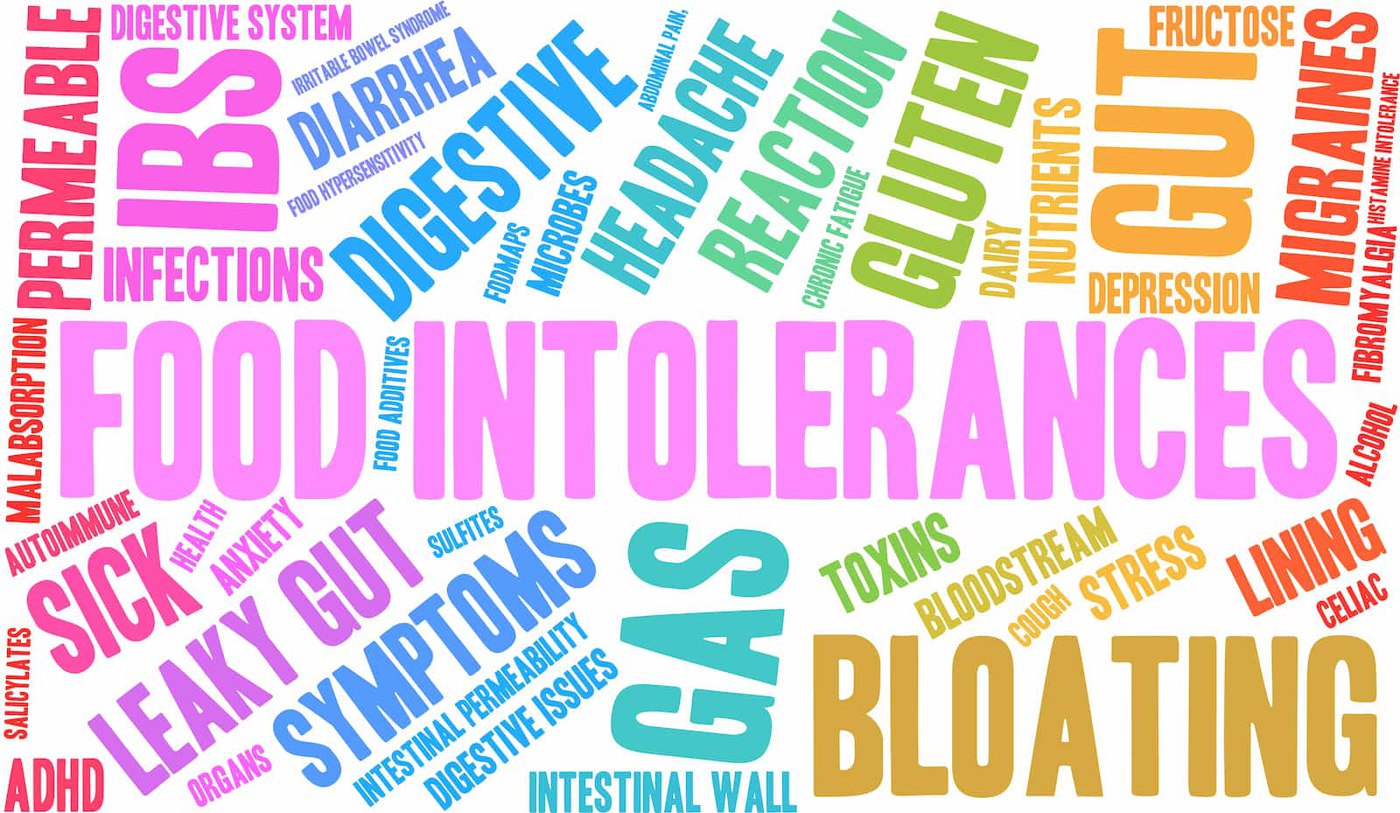Food Intolerance (Sensitivity) Vs Food Allergies: Signs and Symptoms
May 5th, 2022 | 5 min. read


You’ve probably been there: you eat something and immediately feel a reaction in your body. Perhaps you’re itchy or your stomach is bloated or you feel sick. So, you wonder if you’ve developed an allergy to the food you’ve just eaten or if you are just sensitive to it.
Food intolerance and food allergies are easily and frequently confused. Although the symptoms of food allergies and intolerance may overlap, knowing the difference between the two is very important.
For example, having a food intolerance may leave you with discomfort or feeling sick after consuming food you are sensitive to, whereas the symptoms you experience after consuming food you are allergic to can be much more serious. So, if you think you can eat food now and again that you may be sensitive to or allergic to, you should get tested and diagnosed before taking any chances.
What is Food Intolerance/Sensitivity?
Food intolerance or sensitivity occurs when your digestive tract is unable to properly break down and process food. Unlike a food allergy, food intolerance only affects the digestive system, so symptoms are less severe than an allergic reaction.
Your body may be unable to properly process certain foods, and therefore have a food intolerance, for several reasons including:
- Enzyme deficiency: Digestive enzymes speed up the chemical reactions in our bodies that allow the nutrients in food to be broken down and turned into substances the digestive tract can then absorb. Therefore, when we lack enzymes, the food cannot be properly broken down and absorbed through digestion. Lactose intolerance is a common example of food intolerance that is due to an enzyme deficiency.
- Sensitivity to food additives: Additives are commonly added to foods to preserve food or change the taste or color of food. Sensitivity to food additives is when a person experiences an adverse reaction to certain additives in food. A common example of this is a sensitivity to sulfites in preserved fruit or wine.
- Irritable Bowel Syndrome: Irritable Bowel Syndrome (IBS) is a chronic digestive condition affecting the large intestine causing a range of symptoms, including cramping, gas, abdominal pain, bloating, constipation, and/or diarrhea. Eating and drinking certain foods and beverages may trigger the symptoms of IBS including milk, wheat, citrus fruits, cabbage, and carbonated drinks.
- Celiac disease: Celiac disease is an autoimmune disease of the gut in response to eating gluten, which is a protein found in wheat, barley, and rye. It is neither a food allergy nor food intolerance, and consuming foods with even small amounts of gluten can trigger an immune response that damages the small intestine.
- Crohn’s disease: Crohn’s disease is a type of Inflammatory Bowel Disease (IBD) characterized by inflammation in your digestive tract. The symptoms are similar to food intolerance, but more severe, including abdominal pain, bloody diarrhea, weight loss, and fatigue. If you have Crohn’s disease, you may be more sensitive to certain foods, worsening your symptoms overall.
Interested in seeing an allergist for your food allergies?
What are food allergies?
Whereas food intolerance occurs in the digestive system, food allergies occur in the immune system. Food allergic reactions are usually much more severe than food intolerance reactions, and in some cases, an allergic reaction to food can be fatal.
Food allergic reactions can occur from ingesting even small amounts of food. A food allergy is an improper immune response to certain foods. The body’s immune system miscategorizes certain foods as an invader and attacks them as it would with an infection.
This results in an allergic reaction where the body begins to release chemicals such as histamine, which cause the symptoms of food allergies which range from mild to severe. However, food allergies are serious because even if you have a mild food allergy, there is a chance that your next reaction could be more serious or life-threatening.
Symptoms of food sensitivity
The symptoms of food sensitivity are milder than the symptoms of food allergies. They often leave you with an upset stomach and can occur within a few hours of consuming the food, reactions happening as the food makes its way through your digestive tract. Common symptoms of food intolerance include the following:
- Upset stomach
- Abdominal pain
- Nausea
- Diarrhea
- Gas and bloating
- Headaches
- Heartburn
Symptoms of food allergies
Food allergy symptoms are more severe than food intolerance symptoms, although there are some similarities. Reactions can range from mild and uncomfortable to serious and life-threatening, and may have different qualities and severity at different times even for the same individual.
Generally, food allergy reactions come on faster than food sensitivity symptoms, usually between minutes to an hour after exposure.
- Itching or tingling in the mouth
- Swelling (commonly in the lips, tongue, face, throat, mouth)
- Skin itching, hives
- Abdominal pain
- Diarrhea
- Nausea
- Vomiting
- Wheezing, trouble breathing
- Dizziness, lightheadedness, fainting
Anaphylaxis
Anaphylaxis is a severe food allergy reaction and can cause life-threatening symptoms like:
- Constriction and tightening of airways
- Difficulty breathing
- Severe drop in blood pressure and shock
- Rapid pulse
- Dizziness or fainting
Emergency treatment is essential for anyone who develops anaphylaxis. Untreated, anaphylaxis can result in death. So if you see someone having any of the symptoms described above, immediately seek emergency treatment.
Treatments for food allergies
After you are diagnosed with food allergies, the first step is to cut out the food from your diet. As mentioned earlier, even if you have mild symptoms from a food allergy, subsequent exposures can result in more severe symptoms.
Emergency medications like epinephrine autoinjectors should be available for you to use at all times in the case that you accidentally consume the food and have a reaction. If you do have a reaction, you should immediately use the epinephrine autoinjector and seek emergency medical care.
If your healthcare provider diagnoses you with a food allergy, they may prescribe you one or more of the following medications:
- Epinephrine (EpiPen or Auvi-Q): This is a life-saving emergency medication that is used after an allergic reaction to reverse anaphylaxis.
- Antihistamines: Antihistamines are common allergy medications that reduce the effects of histamine that is released during allergic reactions. These are usually used for itching.
- Corticosteroids: Reduce swelling in the case of a severe allergic reaction.
Treatments for food sensitivity
Unlike a food allergy, food sensitivities do not require immediate treatment. However, avoiding or cutting down on the foods to which you are sensitive may help reduce symptoms.
An elimination diet can help you to feel more comfortable and identify which foods are causing problems. This involves cutting out certain foods that you think may cause the problem for two to three weeks. You may keep a food diary to note what you are eating and how you feel. Then, after this period has passed, you can reintroduce the foods and note any changes you have.
Furthermore, other medical issues may be at the root of your food intolerance, like Celiac disease, IBS, or Crohn’s disease. If this is the case, then those conditions should be treated and may ease your overall food intolerance symptoms.
Seeing an allergist for food allergies
If you believe you or your child has an allergy, you should get yourself or them tested for food allergies here at Houston ENT & Allergy.
Food allergy testing
Skin prick testing is a common food allergy test used by allergists. This involves placing a tiny amount of an allergen onto the skin of the forearm or back with a small prick or scratch. Then, you wait about fifteen minutes to see if there is a red dot or bump where the prick is. If there is, you may have an allergy. This is a commonly used test because it is easy, provides fast results, and multiple allergens can be tested at once. Skin prick testing does not help diagnose food intolerances or sensitivities, however.
If you are diagnosed with food allergies, your doctor will prescribe the appropriate medication depending on the type of allergy you have and your symptoms.
Contact us here at Houston ENT & Allergy to set up an appointment to be tested for food allergies.
Topics:
